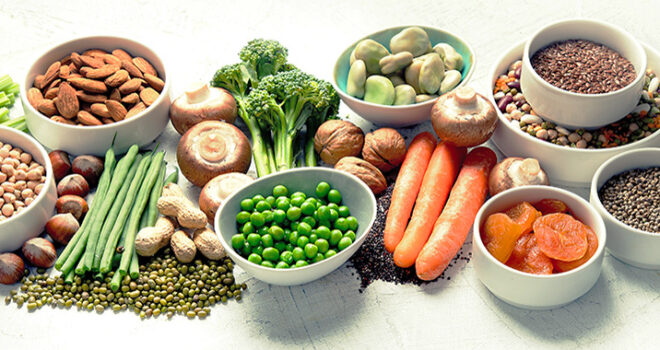What is a legume? What are their benefits and how do they compare to vegetables? Improve your knowledge about these plant-based foods that have a bright future!
Legumes: a special plant-based food
The word legumes, is derived from the Latin legumen, which means «vegetable». In botanical terms, a «leguminous» plant designates a specific type of vegetable. Legumes, like vegetables, grow in the soil. Common vegetables (courgettes, green beans, lettuce, etc.) are eaten fresh, while legumes are grown for their «dried» seeds (FAO).
Furthermore, legumes are able to fix nitrogen, which makes soil naturally fertile and reduces the need for synthetic additives. Finally, they are robust plants, which are able to adapt to arid climate conditions. Legumes are a staple of traditional diets in many countries, such as Pakistan, India and the Middle East.
A range of nutritional values
Even though they belong to the same botanical family as vegetables, legumes have a distinctive nutritional value. They are:
- Rich in fibre
- Rich in starch
- A source of plant-based protein
Their high nutritional protein content sets them in the category of high-protein foods (meat, poultry, fish, eggs, legumes and plant-based alternatives) rather than plant-based foods (fruit and vegetables). In short, 100 g of legumes provide as much protein as 100 g of meat, without the saturated fat. In addition, due to their high fibre content, they have a low glycaemic index and are beneficial for digestive health.
For a balanced diet, eat foods that are rich in protein once or twice a day, alternating between animal and plant-based sources. Eat legumes at least twice a week. Products with high nutritional value appear to be a solution for a sustainable diet. As mentioned earlier, they are a staple and an alternative to meat in many cultures. For inspiration and recipes from all over the world, go to the FAO website.
What about vegetables?
Vegetables are included in the «fruit and vegetables» category. They are a source of vitamins, minerals and antioxidants. It is recommended to eat at least 3 servings of vegetables per day, along with a source of protein and carbohydrates (complex cereals).



 Onions
Onions  Chickpeas
Chickpeas  Vegetable garden: growing lentil
Vegetable garden: growing lentil 









